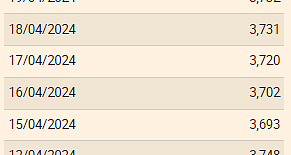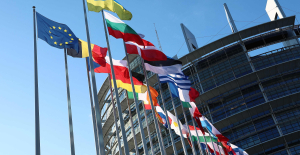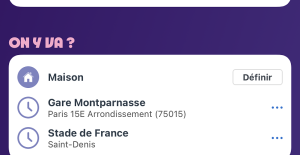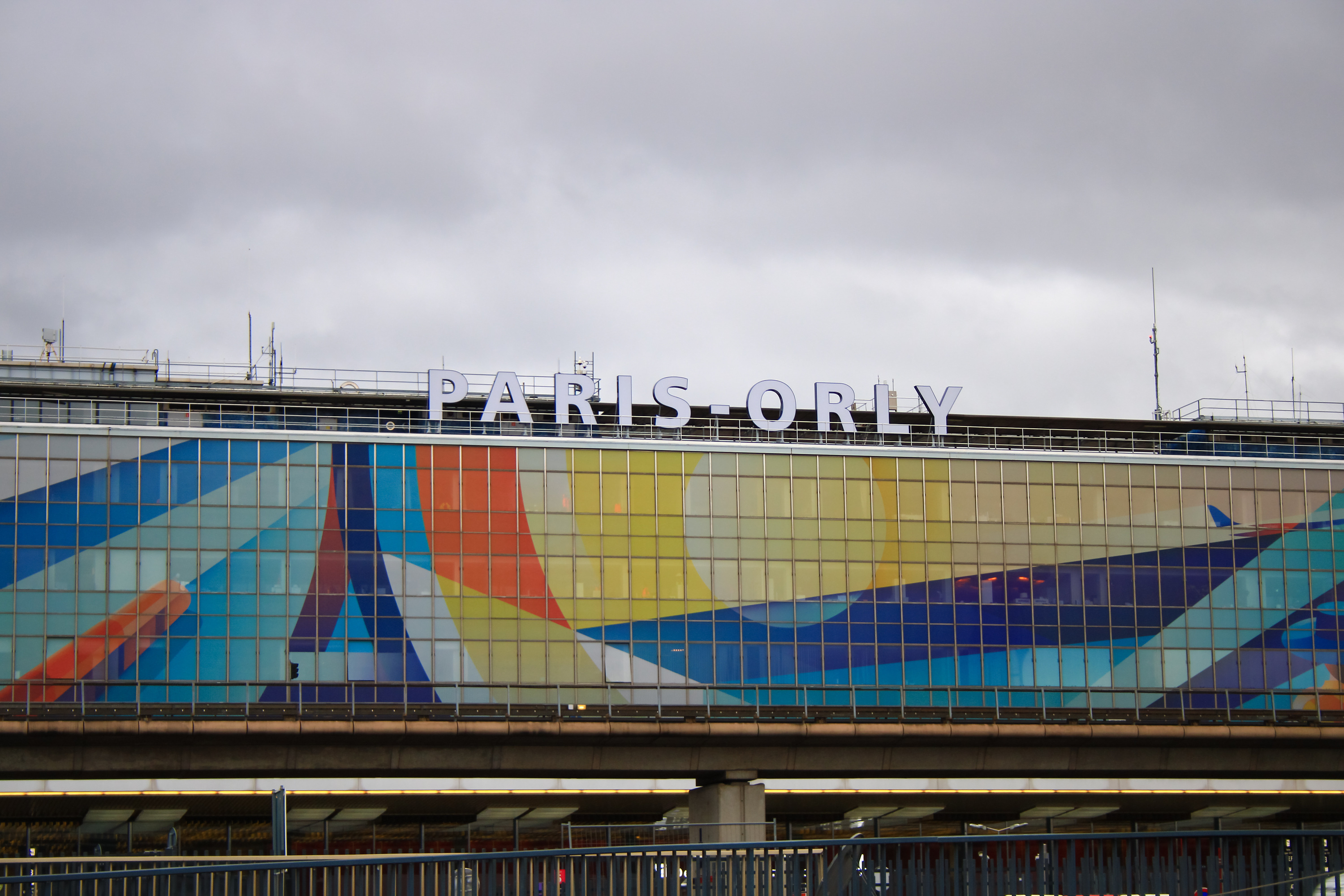Creativity in choosing names for laws is probably intended to express closeness to the people. The new federal regulations on the expansion of wind energy, which are intended to put pressure on countries that are in default to make faster progress with the expansion of wind energy, are called the "Wind-on-Land Act".
This topic is hotly disputed between North and South, between the federal and state governments and in many local authorities. From February, at least the legal aspect should become a little clearer. With the "Wind-on-Land-Gesetz" the federal government wants to make it possible to achieve the climate goals and expand the areas on which wind turbines may be set up. It is one of the regulations and innovations to be observed in February.
So far, according to the federal government, 0.8 percent of the state area has been designated for onshore wind energy - however, only 0.5 percent is actually available. The new law is intended to ensure that by 2032, two percent of the area for wind turbines must be designated at state level. By 2027, 1.4 percent of the area should be available for wind energy. Repowering measures at the same location are preferable.
"We divide it up regionally fairly, taking into account the wind conditions, nature and species protection and the spatial arrangements," says Federal Minister of Economics Robert Habeck (Greens). It remains up to the federal states to decide how to meet their area targets. "But we rule out preventive planning," says Habeck.
It works like this: The federal states can continue to decide on minimum distances, but they must ensure that they achieve their area targets and thus make their contribution to the expansion of wind energy. If they don't do this, the distance rule of one kilometer between residential buildings and wind turbines no longer applies.
The federal government also wants to approve the installation of wind turbines in landscape protection areas. The goal: by 2030, 80 percent of the electricity consumed in Germany should come from renewable energies in order to achieve greenhouse gas neutrality by 2045.
The Corona Occupational Health and Safety Ordinance ends early on February 2nd. It was originally supposed to last until April 7th. The special hygiene precautions would have provided important services, especially in the peak phases of the pandemic, says Federal Labor Minister Hubertus Heil (SPD), who recently repealed the regulation.
Extensive protective measures would have prevented infections in the company and thus helped to avoid work and production losses. But due to the increasing immunity in the population, the number of new cases is falling sharply. Uniform nationwide specifications for operational infection protection are no longer necessary, according to the minister.
Also on February 2nd, the mask requirement in long-distance traffic of Deutsche Bahn will end. Following this decision by Federal Health Minister Karl Lauterbach (SPD), the federal states also followed suit and, for their part, decided to end the obligation to wear masks in public transport. From the beginning of February, the mask will no longer be mandatory on buses and trains nationwide.
In Hamburg and North Rhine-Westphalia, the regulation is due to expire on February 1st, according to the state governments there. In Bremen, Hesse, Lower Saxony, Rhineland-Palatinate and Saarland, this will be the case on February 2, the “Tagesschau” reported. The other nine countries have already ended the mask requirement in local transport or at least announced their abolition by the beginning of February. Thuringia ends the mask requirement on February 3rd - and thus as the last federal state.
In the meantime, the National Association of Statutory Health Insurance Physicians (KBV) has also called for the nationwide lifting of the mask requirement in medical practices. The German Association of General Practitioners also demanded this. However, Martina Wenker, President of the Lower Saxony Medical Association, is against the abolition of the mask requirement in medical facilities. It is at least negligent to abolish them in crowded waiting rooms, where people are most likely to infect others, said Wenker to the “Neue Osnabrücker Zeitung”. At least in winter the mask should still apply.
A new first aid kit is needed from February. With a transitional period of one year, drivers had to get their first-aid kit in their vehicle up to scratch by January 31st. Because it was made corona-compatible by adapting the corresponding DIN standard, which has been in force since February 1, 2022. In the future, two surgical or FFP2 face masks must be included. But you can also carry two masks in the box or in the car if the old first aid kit has not yet expired.
Although not mandatory, but also useful: disinfectants. The 40 x 60 centimeter bandage was canceled without replacement and one of two triangular bandages may also be omitted. According to the ARAG experts, anyone who does not have their first-aid kit with them while driving must expect a fine of five euros.
It is irrelevant whether the vehicle is your own, privately borrowed or a rental car. The driver of the vehicle must ensure that the box is on board. Motorcycles are exempt from this obligation. By the way: First aid kits in cars have been mandatory since 1972.
From February, cars with the emission class Euro 4 or worse are no longer allowed to drive in Munich city center and on the Mittlerer Ring. Excluded, however, are vehicles from people who live in the diesel restricted area. Special rules also apply to social and nursing support services, shift workers, suppliers of essential goods, sick people who live in the surrounding area and have to go to the doctor in the city center, for example. They are also allowed to go into the city center with their older diesel.
However, they have to buy a license, reports the Munich “Abendzeitung”: Three days cost 50 euros. 60 euros are due for one month, 90 euros for three months, 150 euros for six months and 180 euros for nine months. If you need a driver's license for a whole year, you pay 200 euros.
The Euro 4 standard applies to new vehicles from 2006 to 2011. Driving bans for these vehicles have already been in place in Berlin, Stuttgart, Hamburg and Frankfurt/Main since 2019. According to the Federal Motor Transport Authority, there are conversion kits for many older diesel models. It is even possible to convert from Euro 2 to Euro 6.
The federal government originally limited the short-term measures to reduce energy consumption to February 28, 2023. However, because there is still a need to reduce energy consumption and the previous Russian energy supplies cannot yet be completely replaced by other sources of supply or renewable energies, the Energy Saving Ordinance is to be extended until April 15, 2023.
This means that the regulation to reduce the minimum room temperature in workplaces by one degree Celsius and the maximum temperature in public workplaces to 19 degrees as well as the ban on heating private swimming pools continue to apply. Washing hands with warm water should also not be permitted if the water heating is only used for hand washing. And the use of illuminated advertising is still prohibited between 10 p.m. and 6 a.m.
"Everything on shares" is the daily stock exchange shot from the WELT business editorial team. Every morning from 7 a.m. with our financial journalists. For stock market experts and beginners. Subscribe to the podcast on Spotify, Apple Podcast, Amazon Music and Deezer. Or directly via RSS feed.

 The Euribor today remains at 3.734%
The Euribor today remains at 3.734% Germany: the trial of an AfD leader, accused of chanting a Nazi slogan, resumes this Tuesday
Germany: the trial of an AfD leader, accused of chanting a Nazi slogan, resumes this Tuesday New York: at Columbia University, the anti-Semitic drift of pro-Palestinian demonstrations
New York: at Columbia University, the anti-Semitic drift of pro-Palestinian demonstrations What is Akila, the mission in which the Charles de Gaulle is participating under NATO command?
What is Akila, the mission in which the Charles de Gaulle is participating under NATO command? What High Blood Pressure Does to Your Body (And Why It Should Be Treated)
What High Blood Pressure Does to Your Body (And Why It Should Be Treated) Vaccination in France has progressed in 2023, rejoices Public Health France
Vaccination in France has progressed in 2023, rejoices Public Health France Food additives suspected of promoting cardiovascular diseases
Food additives suspected of promoting cardiovascular diseases “Even morphine doesn’t work”: Léane, 17, victim of the adverse effects of an antibiotic
“Even morphine doesn’t work”: Léane, 17, victim of the adverse effects of an antibiotic MEPs validate reform of EU budgetary rules
MEPs validate reform of EU budgetary rules “Public Transport Paris 2024”, the application for Olympic Games spectators, is available
“Public Transport Paris 2024”, the application for Olympic Games spectators, is available Spotify goes green in the first quarter and sees its number of paying subscribers increase
Spotify goes green in the first quarter and sees its number of paying subscribers increase Xavier Niel finalizes the sale of his shares in the Le Monde group to an independent fund
Xavier Niel finalizes the sale of his shares in the Le Monde group to an independent fund Owner of Blondie and Shakira catalogs in favor of $1.5 billion offer
Owner of Blondie and Shakira catalogs in favor of $1.5 billion offer Cher et Ozzy Osbourne rejoignent le Rock and Roll Hall of Fame
Cher et Ozzy Osbourne rejoignent le Rock and Roll Hall of Fame Three months before the Olympic Games, festivals and concert halls fear paying the price
Three months before the Olympic Games, festivals and concert halls fear paying the price With Brigitte Macron, Aya Nakamura sows new clues about her participation in the Olympics
With Brigitte Macron, Aya Nakamura sows new clues about her participation in the Olympics Skoda Kodiaq 2024: a 'beast' plug-in hybrid SUV
Skoda Kodiaq 2024: a 'beast' plug-in hybrid SUV Tesla launches a new Model Y with 600 km of autonomy at a "more accessible price"
Tesla launches a new Model Y with 600 km of autonomy at a "more accessible price" The 10 best-selling cars in March 2024 in Spain: sales fall due to Easter
The 10 best-selling cars in March 2024 in Spain: sales fall due to Easter A private jet company buys more than 100 flying cars
A private jet company buys more than 100 flying cars This is how housing prices have changed in Spain in the last decade
This is how housing prices have changed in Spain in the last decade The home mortgage firm drops 10% in January and interest soars to 3.46%
The home mortgage firm drops 10% in January and interest soars to 3.46% The jewel of the Rocío de Nagüeles urbanization: a dream villa in Marbella
The jewel of the Rocío de Nagüeles urbanization: a dream villa in Marbella Rental prices grow by 7.3% in February: where does it go up and where does it go down?
Rental prices grow by 7.3% in February: where does it go up and where does it go down? Europeans: “All those who claim that we don’t need Europe are liars”, criticizes Bayrou
Europeans: “All those who claim that we don’t need Europe are liars”, criticizes Bayrou With the promise of a “real burst of authority”, Gabriel Attal provokes the ire of the opposition
With the promise of a “real burst of authority”, Gabriel Attal provokes the ire of the opposition Europeans: the schedule of debates to follow between now and June 9
Europeans: the schedule of debates to follow between now and June 9 Europeans: “In France, there is a left and there is a right,” assures Bellamy
Europeans: “In France, there is a left and there is a right,” assures Bellamy These French cities that will boycott the World Cup in Qatar
These French cities that will boycott the World Cup in Qatar Serie A: Bologna surprises AS Rome in the race for the C1
Serie A: Bologna surprises AS Rome in the race for the C1 Serie A: Marcus Thuram king of Italy, end of the debate for the position of number 9 with the Blues?
Serie A: Marcus Thuram king of Italy, end of the debate for the position of number 9 with the Blues? Milan AC-Inter Milan: Thuram and Pavard impeccable, Hernandez helpless… The tops and flops of the derby
Milan AC-Inter Milan: Thuram and Pavard impeccable, Hernandez helpless… The tops and flops of the derby Ligue 2: Auxerre leader, Bordeaux in crisis, play-offs... 5 questions about an exciting end of the season
Ligue 2: Auxerre leader, Bordeaux in crisis, play-offs... 5 questions about an exciting end of the season


















